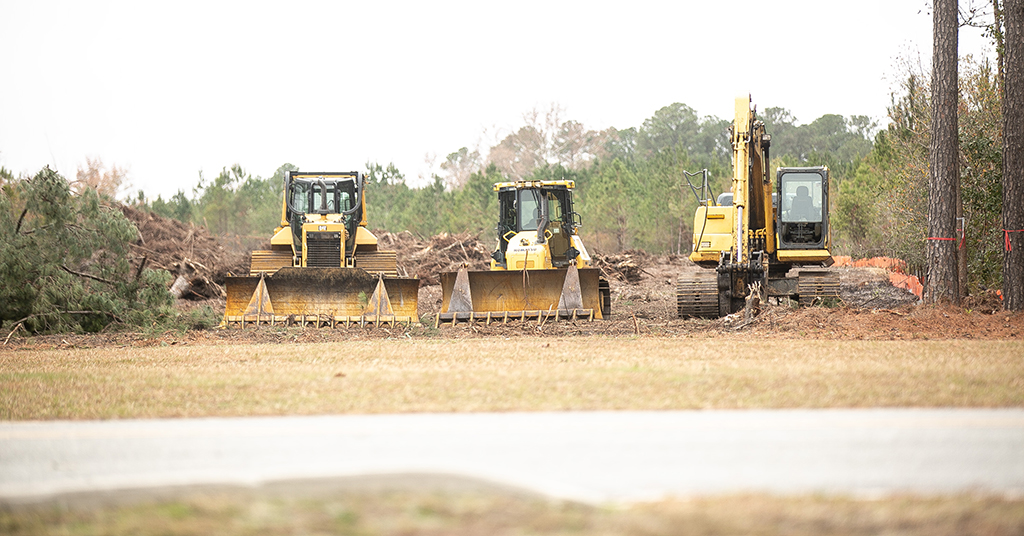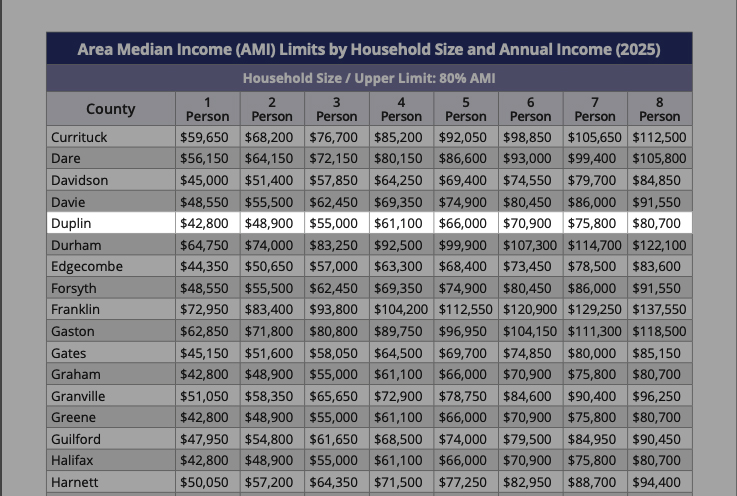KENANSVILLE — Duplin County leaders say the year ahead represents a period of intentional growth, with investments aimed at strengthening the local economy, improving public facilities and expanding services that touch residents’ daily lives.
County officials point to economic development projects, education improvements and long-term planning as signs of a county preparing for future opportunity while managing growth responsibly.
Deputy County Manager Carrie Shields said one of the most significant efforts underway is the county’s continued focus on job creation and economic development.
“Right now, the county is constructing two 50,000-square-foot shell buildings designed to attract new businesses and industries,” Shields said. “These buildings allow companies to locate and begin operations more quickly, which means new jobs, increased tax base, and long-term economic stability for our county.”
Economic growth efforts also extend to aviation-related development. Shields said a new 12,000-square-foot hangar planned at the Duplin County Airport will further support business and transportation activity.
“Together, these projects will create opportunities that will provide new employment, supporting existing businesses and helping ensure the county continues to grow in a way that benefits residents today and for years to come,” she said.
Beyond economic development, county leaders say investments in public facilities and community services are equally important. Shields said she hopes residents will recognize the county’s focus on meeting needs across all stages of life.
“When I imagine the county a few years from now, I hope residents are most proud of how intentionally we invested in the citizens,” Shields said.
Recent and ongoing projects include a newly constructed Senior and Veteran Services building, a new Public Transportation building and the Workforce Development Center at James Sprunt Community College.
“We are building pathways to education and good-paying jobs right here in our county.”
Interim County Manager Lisa Hughes said recent progress is part of a broader momentum for the county, made possible in part by securing outside funding to support major projects without placing additional strain on local taxpayers.
Several large-scale projects are already underway. Hughes said a new detention center is scheduled to open in March 2026, relocating a division of the Sheriff’s Office from downtown Kenansville. Leadership planning is also underway.
“The Board of Commissioners has begun its search for the next County Manager, who will be selected and hired in the first quarter of 2026,” Hughes said.
Education is also a major focus. Hughes said one project expected to have a significant impact on families’ everyday lives is the renovation of East Duplin High School.
“In collaboration with the Board of Education, we have secured state funds for a complete renovation of the East Duplin High School,” Hughes said. “Improvements to facilities utilizing state and federal funds help lessen the financial burden on the use of local funds.”
Community gathering spaces are also part of the county’s long-range vision as the Duplin County Events Center continues to bring people together through concerts and community events providing both entertainment and economic activity while giving residents a place to gather.
Looking ahead, county officials are developing a master plan for Cabin Lake County Park, with an emphasis on creating connection across generations.
“We are working on a master development plan for Cabin Lake County Park, which creates thoughtfully designed spaces that promote wellness and community connection for all ages,” Shields told Duplin Journal. “We want growth. We have plans. We have a future.”
Shields said she hopes residents will look back on the current period as a turning point, one marked by intentional planning and investment.
“My hope is that residents look back and see this was a time we planned for the future by envisioning all the possibilities we have in our county,” Shields said.
Hughes said she hopes residents will take pride in both the opportunities available to them and the people providing county services.
Looking ahead, Hughes said she hopes residents will take pride in both the opportunities available to them and the people providing county services.
Together, county leaders say the projects underway reflect a shared goal of thoughtful growth that benefits residents now and in the years ahead.

 Twitter
Twitter Facebook
Facebook Instagram
Instagram




